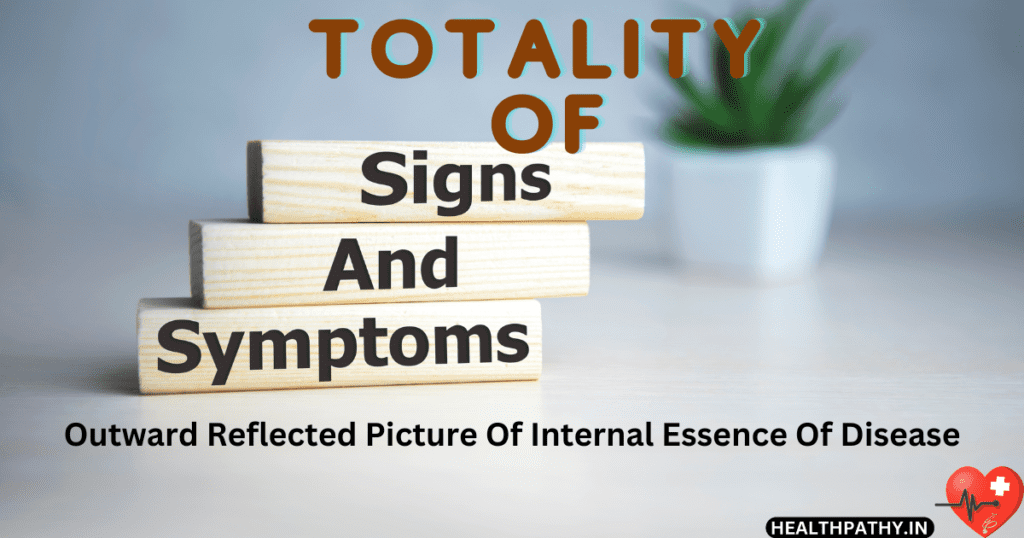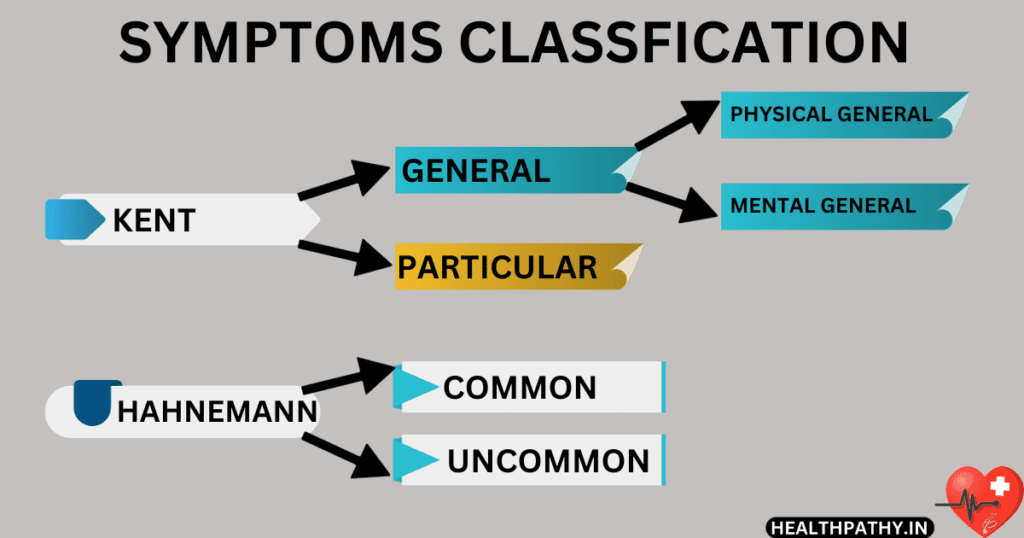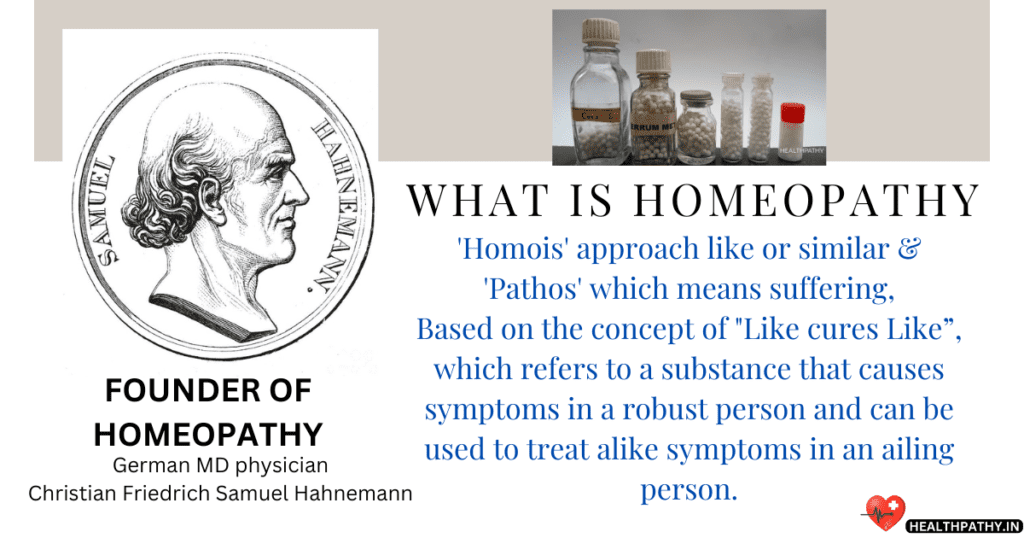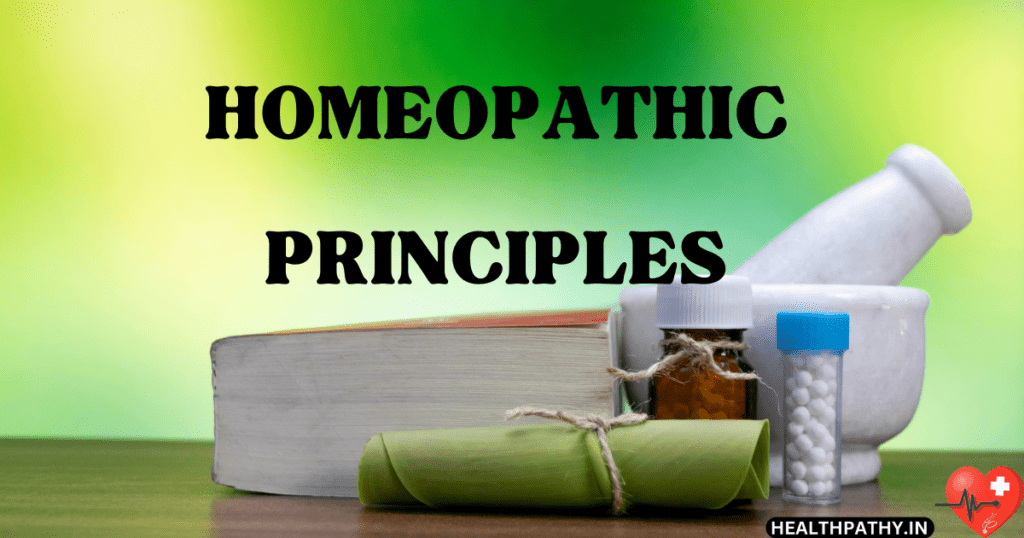Hello, I’m a homeopathic doctor with over two decades of clinical experience, starting my journey in 1997. My passion lies in simplifying complex medical concepts and making them easy for everyone to understand. Join me on this informative adventure where I’ll break down the Selection Of Symptoms In Homeopathy in a way that’s relatable and accessible to all. Let’s explore the world of holistic health together!


The choice of Selection Of Symptoms In Homeopathy as signs and symptoms is an essential point of the exercise. Homeopath’s awareness of matching the signs and symptoms of an individual with a specific homeopathic remedy is acknowledged to provide similar signs in a healthy person. This is based on the precept of “Like cures Like,” which is crucial to homeopathy.
When selecting signs and symptoms, homeopaths usually do not forget numerous factors:
Individualization
Homeopathy highlights an individual remedy and person, with specific signs and symptoms, and traits of someone. Homeopaths search to recognize the general image of the person’s health, which includes bodily signs, emotional accept, temperament, symptoms, and any aggregation or amelioration of symptoms.


Totality of Symptoms And Signs
Homeopaths collect the totality of symptoms experienced by the individual, such as bodily, mental, and emotional states. They additionally don’t forget to feature signs and symptoms specific to the individual and any general or unusual signs and symptoms associated with the circumstance and compare them with the totality of signs and symptoms of the remedy.
Modalities
Modalities check with the factors that have an impact on the symptoms, together with time of day, temperature, weather conditions, rest, or movement. Homeopaths inquire approximately about the factors that worsen or lessen the signs and symptoms, which help guide the treatment choice.
Keynotes and strange signs and symptoms
Keynotes are one-of-a-kind or odd signs and symptoms that can be strongly associated with a specific remedy or person. These signs may be particular or uncommon, helping to slender/narrow down the selection of treatments. Keynotes can vary depending on the specific condition being dealt with.
Study of Repertories and materia medica
Homeopaths often seek advice from repertories and materia medica, which are complete reference books, and medical-providing proving documents that provide records on the signs and symptoms and characteristics of numerous remedies. Repertories categorize signs and manuals for homeopaths in locating treatments to fit the person’s signs.
It’s essential to be aware that the selection of signs and symptoms in homeopathy is subjective and depends strongly on the information and experience of the homeopath. It’s always beneficial to seek advice from a qualified healthcare professional for evidence-based treatment options.
General Symptoms And Particular Symptoms
In homeopathy, symptoms are categorized into general and particular signs and symptoms and specific signs, according to Dr. Kent. These classes assist homeopaths in deciding on a suitable remedy.


General signs and symptoms
General symptoms display the general state or condition of the individual. These symptoms aren’t specific to a selected organ or body part; however, reflect a more holistic or systemic disturbance. General signs and symptoms can encompass:
- Constitutional signs and symptoms: These are the character’s general bodily, mental, and emotional traits, which include temperament, sleep styles, strength tiers, and susceptibility to some positive situations.
- Modalities: Modalities are factors that worsen or relieve, or alleviate signs and symptoms. They include factors like time of day, weather conditions, temperature, rest, or motion. For example, signs and symptoms that worsen in cold climates or improve with warmth can be taken into consideration as modalities.
General symptoms display the perception of the individual’s normal fitness and assist manually in the selection of a treatment that matches their unique character/patient.
Particular signs and symptoms
Particular signs, also known as local or characteristic signs, are precise to a specific organ or body element. These signs are in general the main complaints that the man or woman presents with and may be different from person to person. Examples of particular signs and symptoms encompass:
- Pain: Specific vicinity, type, and sensation of ache experienced by the individual.
- Discharges: Characteristics of any normal or ordinary discharges, which include color, consistency, scent, or timing.
- Mental and emotional signs: Unique emotional states, thoughts, or behaviors that are critical in the person.
- Specific bodily symptoms: Symptoms related to a selected organ or part, along with digestive troubles, respiration symptoms, skin situations, and so forth.
Particular signs and symptoms offer extra precise details about the character’s condition and help to narrow down the selection of a suitable remedy that has been acknowledged to supply similar symptoms.
Homeopaths recall both general and particular signs and symptoms to build an entire case image of the man or woman’s kingdom of fitness. The totality of signs and symptoms, together with both widespread and precise signs, is then used to fit the individual’s signs and symptoms with a comparable homeopathic remedy.
Must Read:
Friday 18 April 2025 5:17:23:PM
- Acromegaly Cures With Scientifically Proven Homeopathy - 8 February 2024
- Acidity Cures With Scientifically Proven Homeopathy - 1 February 2024
- Appendicitis Cures With Scientifically Proven Homeopathy - 27 January 2024





